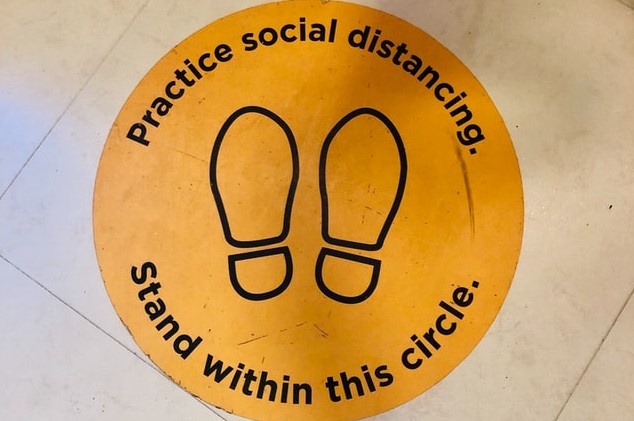Entrepreneurs Adapt to the New Business Normal

When the coronavirus pandemic began, Main Street shut down, forcing many small businesses to close their doors and rethink their operations. To learn how the pandemic has impacted U.S. small businesses, especially “Main Street” establishments such as retail stores and restaurants, SCORE surveyed more than 3,500 business owners across the country for the Megaphone of Main Street: Impact of COVID-19 report.
Findings show that small business owners are adapting and making significant changes, in order to maintain business and thrive in a new business normal. For some, the changes caused by the pandemic have resulted in new business ideas, and an ability to reach a wider audience.
Small Businesses are Modifying Spaces and Accommodating Employees
According to the Megaphone report, COVID-19 caused majority of small businesses to make significant changes in their operations. Most businesses (70.8%) had to change their operations to include things like personal protective equipment, new safety protocols, and telework since March 2020.
When small business owners were asked what changes they had made with their business, 43.1% said they began providing protective equipment (PPE) for workers, 34.4% said they began teleworking, 29.4% said they revised employee policies and procedures, and 20.4% said they began providing new services to support the community during the crisis.

Small Business Owners are Adapting to Provide Services Online
With an understanding that brick and mortar stores may not be able to reopen for some time, many small business owners began taking the steps to transition their services online. Before the pandemic, Jennifer Jones, owner of Cosmopolitan Plated in Arlington, Virginia, used interactive cooking activities to build and strengthen communities. But, when her kitchen was forced to close, she didn’t know what to do.
Shortly after closing her shop, Jennifer connected with her SCORE mentor, who was able to help her modify her business plan and transition her services to an online format. Now, Jennifer is reaching an even wider audience, and helping communities stay connected amid the pandemic, by providing interactive virtual cooking activities..
Big Changes are Sparking New Ideas
Speech-language pathologist – turned entrepreneur – Alison Weinlaeder was furloughed from her work due to COVID-19. Amid the pandemic, Alison recognized the need for home-based fitness resources and decided it was time to launch her business. Soon after, Alison launched Cardiomelon, an online subscription-based fitness program designed to empower adults, especially seniors, to take control of their cognitive and physical health through easily accessible brain and body exercises.
Alison credits SCORE’s free resources for saving her time and money, and her SCORE mentor, for helping her overcome initial roadblocks. Within 90 days of launching, Cardiomelon was on track to meet its goal of 100 subscribers.
Take Advantage of Free Small Business Resources
You don’t have to navigate this changing space alone! Connect with a free, expert SCORE mentor today for help adapting your business plan, or launching your new business idea.
This guest post was authored by Betsy Dougert, VP, External Relations, SCORE
Betsy currently serves as Vice President of External Relations for SCORE, where she is responsible for national public relations, government relations and sponsors. Her ten years of experience in marketing and communications have focused on building brand awareness and engaging stakeholders through storytelling at educational institutions and non-profits. She earned her master’s degree in strategic communications with a certificate in public relations from Villanova University, and a bachelor’s degree from the College of William and Mary.

